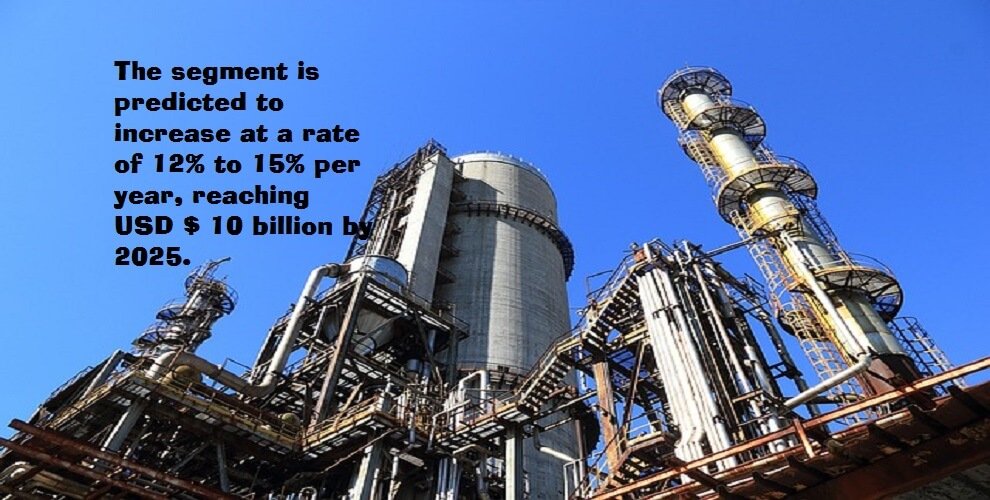Traditional agrochemical companies are banking big on the natural, biochemical crop solutions sector as customers desire chemical-free food. The segment is predicted to increase at a rate of 12% to 15% per year, reaching USD $ 10 billion by 2025.
This week, announced the creation of NPP (Natural Plant Protection) a new global business unit that will house UPL’s portfolio of naturally and biologically derived agricultural inputs and technology. NPP will operate as a separate brand, integrating UPL’s existing biosolutions portfolio and global network of R&D laboratories and facilities, which presently contributes for 7% of UPL’s overall revenues.
According to Sanjiv, Managing Director and CEO of a Tata Enterprise, ‘The Indian Bio Ag solutions industry is anticipated to be worth ₹ 6000 crore in total, including all four major categories and several segments within each, and is expected to expand at a pace of 12-15 percent. The unorganized market accounts for approximately 55 percent of this total.’
Also Read: Pesticides and Agrochemical producers have sought a reduction in the GST
According to Lal, the bio solutions market’s growth drivers include soil health worsening, low/sub-optimal fertilizer use efficiency, increasing abiotic and biotic stress, a large gap between potential and actual yield, an increase in area under high-value crops, an increase in drip irrigation, an increase in awareness of having chemical residue-free food, and farmers’ awareness of integrated crop health management.
‘The biosolutions industry is expected to increase by double digits to US$10 billion by 2025, outpacing traditional agrochemicals, which are expected to grow by single digits. NPP is in an excellent position to design a more sustainable food future’ Fabio Torretta, Chief Operating Officer, NPP, UPL Ltd, stated
Food production is undergoing a rapid transition, which is being fueled by two main factors.’First, people all around the world are looking for more sustainable solutions for the environment and healthier food for themselves, and we expect this to be a market influencing trend for many years.’ A mental shift is taking place.
Secondly, biosolutions are the future of sustainable agriculture, and we anticipate that various biological choices will span the entire range of applications from seed treatment to soil and plant health to post-harvest in the next years.’ There is so much room for new ideas, new goods, and new services, and NPP is dedicated to inventing and cooperating to rebalance the planet with micro power and macro impact,’ Torretta added.
Also Read: Integrated Organic Farming System model of IISR bag national award
Torretta stated that UPL is witnessing demand for NPP products from farmers because of their concerns about plant development and stress, soil health, and the need for long-term solutions. Other significant demand-driving elements come from the organic product and export industry, which has extra pain points such as residue management that NPP products solve.
At this point, an outright drop in consumption of traditional agrochemicals, according to UPL, is unlikely. ‘However, we believe that the biosolutions category will grow at a breakneck pace within the crop protection sector.’ NPP products are about harnessing the “micro power” of mineral, microbial, organic compounds, viral agents, and fungi to reconfigure our crop-protection offering, while also drawing on plant extracts, organic compounds, acids, and nutrients to produce a holistic biostimulant technology offering. UPL’s biosolutions have either been certified or are in the process of being certified as organic.
‘The branded organic segment is worth ₹ 400 crore and is increasing at a pace of 12% per year. The bio-fertilizer category is worth ₹ 300 crore and is developing at a rate of 12%. Biostimulants are rising at a rate of 15%, while bioinsecticides are gaining popularity due to the increased demand for residue-free harvested produce. Biopesticides have a current market value of ₹ 1200 crore and are expanding at a 10% annual rate.
Also Read: Award winning techie turned-farmer, shares journey from software to agricultural
It accounts for 5 to 6% of the total pesticide market. The majority of the items on the market are unbranded, adulterated bio-pesticides loaded with chemicals. Rallis plans to engage in partnerships, joint ventures, and collaborations, as well as market development and promotion of IPM/ICM’said Lal of Rallis.


















Add Comment